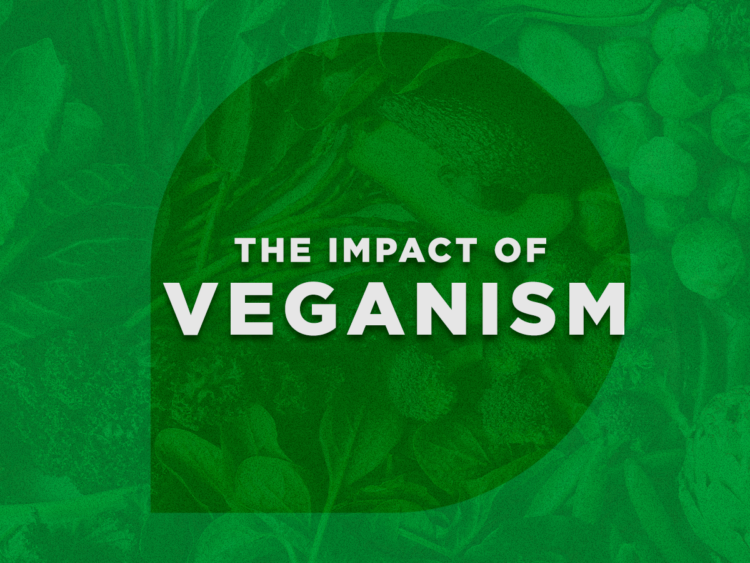
For the last couple of years, consciousness towards sustainability, health, and ethical consumption has increased and accelerated the rise of veganism. Thus, nowadays more and more people are going vegan or choosing plant-based foods.
Unsurprisingly, this shift has affected the state of fast-moving consumer goods (FMCG) significantly and turned veganism from a fridge movement into a mainstream phenomenon in the FMCG industry.
The vegan market is expected to reach £1.1bn by 2023, showing that it is crucial for companies to keep up and answer the plant-based consumer demand in the FMCG industry.
How can consumer goods companies adapt to the FMCG trends shaped by veganism? To answer this question, we will dive into the impact of veganism on the industry and explain how to comply with the constantly changing FMCG landscape.
Emerging Veganism Trends: UK vs. USA
Before moving on to the impact of veganism on the fast-moving consumer goods (FMCG) industry, let’s take a closer look at current veganism trends to further understand the context of change in the industry.
Research shows that 5% of the total population in the US follows a plant-based diet, which is equal to 15.5 million people. On the other hand, there are around 2.5 million vegans in the UK, accounting for 4.7% of the total population.
According to the Vegan Revolution report conducted through social media with 1400 participants in the US and UK, 34% of non-vegan Brits and 22% of non-vegan Americans are considering to shift to veganism in the near future.
The report also revealed that the main factors driving people to veganism are animal welfare, health benefits, global warming, and sustainability.
How do these motivations and trends change the dynamics in the FMCG industry? Let’s explore.
Effects of Veganism on the FMCG Industry
As veganism becomes more popular among customers in the FMCG market, the product or service alternatives are getting their shares from the shift. This transformation is affecting customer demand, product concepts, and supply chains in the FMCG industry.
Here are some details about how these components are affected.
The Need for Plant-Based Alternatives Increasing
When this veganism-affected landscape is considered, it is right to say that for a couple of years, customers’ perceptions towards animal-based products, like meat and dairy, has changed.

In the current situation, your potential customers in the target market might be vegetarian, flexitarian, pescatarian, or meat-eaters who want to cut dairy products or try meat alternatives for health or sustainability concerns.
Therefore, to seize the opportunities in the market, FMCG companies in the food industry need to invest more in expanding their product portfolios to more plant-based or vegan products.
Vegan Market Expansion Driving Product Innovation
As customers in the market desire to enjoy both the quality and functionality of products, the vegan market widens and the significance of product innovation increases.
So today’s customers need substitutes for animal based-products that are similar in taste and texture and provide nutritional benefits. Additionally, these consumers not only consider the vegan side of the product itself but also the packaging and its journey.

This requires companies to produce goods by removing the taste and texture barriers and providing customers with a fully sustainable and vegan customer journey.
It looks like it is essential to make informed decisions to keep up with customers’ pain points and increase the customer experience for FMCG companies. We are here to help you find real customers, test your ideas in real time, and make winning product innovations!
See Our Solutions
Supply Chains Transforming
As we stated before, environmental and sustainability concerns are two key drivers behind rising veganism trends. This means that customers are increasingly considering the end-to-end traceability and environmental effects of products.
Thus, shortening the supply chains and maintaining an environmentally friendly procurement process is vital for FMCG companies to position their products in the right way for their ideal customers.

3 Ways to Adapt to Changing FMCG Trends
So far, we have analysed rising veganism trends and motivators for people to go vegan and evaluated their effects on the FMCG industry. Now, let’s explore how to cope with these changing FMCG trends.
1. Utilise Market Research
Conducting market research enables companies to gather actionable information about customers in the target market and use customers’ data to make informed decisions to market itself more effectively and successfully.
Qualitative and quantitative research help companies realise the needs of target audiences and opportunities in the market.
While qualitative research reveals customer motivations, triggers, barriers, and how to optimise an idea, quantitative research provides the important numbers post the campaign’s launch.
Therefore, both types of market research are imperative for FMCG companies to adopt the shift.
2. Keep Up with Digitalisation
Currently, the buying power in the market has shifted from millennials to Gen Zers , which has made them the main target audience. And these tech-savvy customers are using online methods constantly to research and purchase.
Because of that, FMCG companies need to utilise digitalisation to reshape customer decision journeys and present their substitute products through digital channels like eCommerce or shopping apps.
3. Re-Invent Your Brand
The McKinsey & Company study on the consumer goods industry suggests that brands that are perceived as “mass” or “big” are preferred less by customers in the market and smaller brands are thought to be more innovative and nature friendly.
To overcome these perceptions and easily reach their target audience in the market, companies can diversify their portfolio with more sub-brands and product categories.
In Summary
If you are operating in the FMCG industry, there are a lot of things to consider, from customer eating habits and internet use to packaging preferences and sustainability concerns. Therefore, to keep up with the future of the industry and get the best out of it, first things first, you should understand your customers deeply.
At Bolt Insight, we use one of the best digital market research tools, social media, to help you sit next to your customers with behavioural targeting.
Meet our experienced team to learn how you can utilise quantitative and qualitative Bolt solutions to test your products, increase awareness, and evaluate your campaign!











